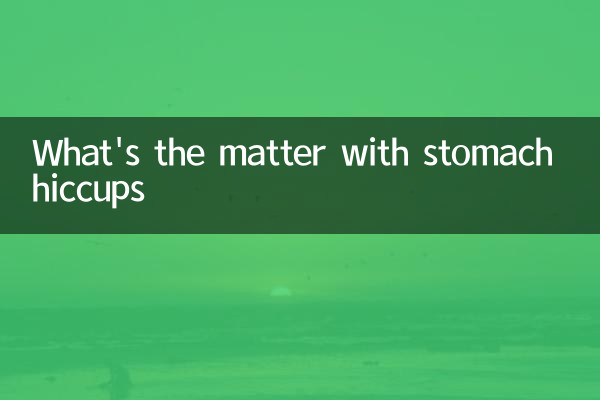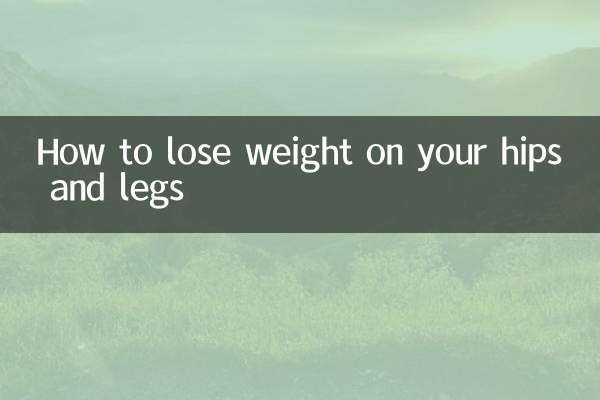What's the matter with stomach hiccups
Gastric hiccups are a common physiological phenomenon that almost everyone has experienced. While hiccups are usually harmless, frequent or persistent hiccups can be uncomfortable. This article will combine popular topics and hot contents across the network for the past 10 days to analyze the causes, symptoms and response methods of stomach hiccups in detail.
1. Common causes of stomach hiccups

Gastric hiccups (medically known as "hiccup") are caused by involuntary contraction of the diaphragm. Here are the common causes:
| reason | illustrate |
|---|---|
| Eat too fast or too much | Swallowing too much air or excessive stomach swelling irritates the diaphragm |
| Carbonated drinks | Gas in the beverage are released in the stomach, causing hiccups |
| Spicy or irritating foods | Stimulates the gastric mucosa and triggers hiccups |
| Emotional fluctuations | Emotions such as nervousness and excitement may cause hiccups |
| Stomach disease | Gastritis, gastric ulcers and other diseases may lead to frequent hiccups |
2. Classification of stomach hiccups
According to duration and cause, stomach hiccups can be divided into the following categories:
| type | Duration | Features |
|---|---|---|
| Transient hiccups | How many minutes to hours | Common, usually disappearing on its own |
| Continuous hiccups | More than 48 hours | Medical intervention may be required |
| Stubborn hiccups | More than 1 month | Rare, potential causes need to be identified |
3. How to relieve stomach hiccups
Most hiccups will go away on their own, but the following methods may help speed up relief:
1.Breath-holding method: Take a deep breath and hold your breath for 10-15 seconds, then exhale slowly.
2.How to drink water: Drinking water continuously in small mouthfuls, or bend over to drink water, may interfere with the hiccup reflex.
3.Scare method: Sudden fright may reset phrenic nerve function (use with caution).
4.Press the acupoint: Gently press the diaphragm area or the upper edge of the orbit.
5.Adjust diet: Avoid overeating, carbonated drinks and spicy foods.
4. When do you need medical treatment?
Although most hiccups are harmless, medical treatment is recommended for:
| symptom | Possible Causes |
|---|---|
| Hiccup lasts for more than 48 hours | Neurological problems, metabolic disorders |
| Accompanied with severe abdominal pain | Gallbladder problems |
| Affects eating or sleep | Need medical intervention |
| Accompanied with vomiting or weight loss | Severe gastrointestinal diseases |
5. Recent hot topics
According to the data monitoring of the entire network for the past 10 days, the following are high-frequency discussion topics related to "stomach hiccups":
| Ranking | topic | Popularity index |
|---|---|---|
| 1 | Sequelae of COVID-19 and long-term hiccups | 8.7 |
| 2 | Frequent hiccups caused by workplace stress | 7.9 |
| 3 | Traditional Chinese medicine acupoint massage to stop hiccups | 7.5 |
| 4 | A practical test of Internet celebrity hiccups | 6.8 |
| 5 | Gastroesophageal reflux and chronic hiccups | 6.5 |
6. Life advice to prevent stomach hiccups
1.Chew slowly: Chew thoroughly when eating to avoid swallowing too much air.
2.Control diet: Avoid overeating and causing excessive stomach swelling.
3.Reduce irritating foods: Limit carbonated beverages, spicy foods and alcohol intake.
4.Manage stress: Relieve tension through meditation, deep breathing, etc.
5.Regular work and rest: Maintain adequate sleep and regular eating habits.
Through the above analysis, we can have a more comprehensive understanding of the causes and coping methods of stomach hiccups. Remember that while occasional hiccups are normal, persistent or severe hiccups may require professional medical advice. Maintaining a healthy lifestyle is the best way to prevent hiccups.

check the details

check the details